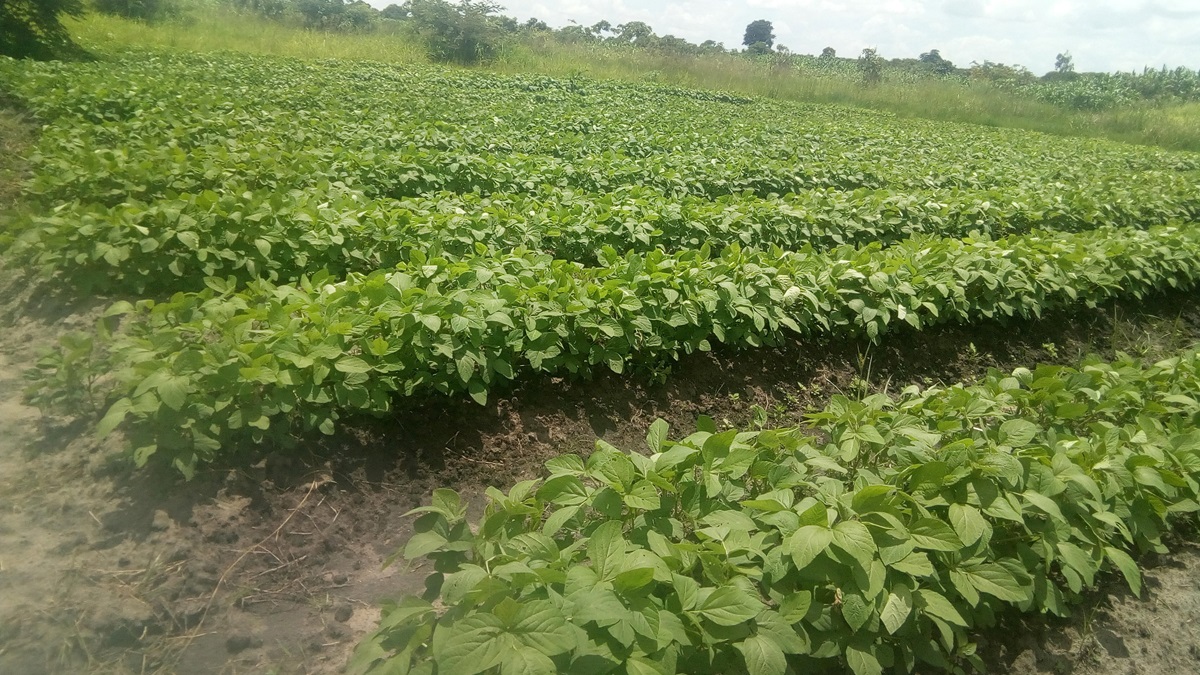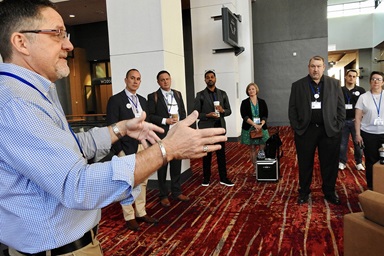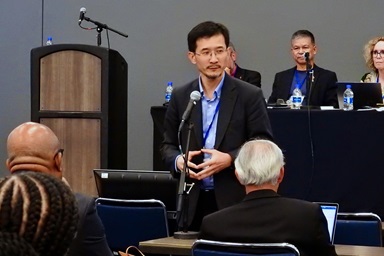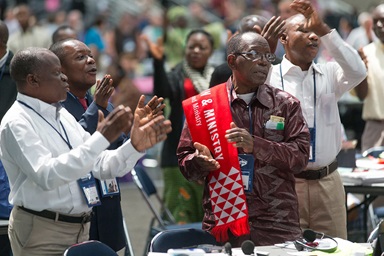In days of increased concern over food security, resource scarcity and deteriorating ecosystems, permaculture farming plays an important role in Malawi.
Permaculture is a system of agricultural ecosystems intended to be sustainable and self-sufficient. A permaculture garden is more than an organic garden. It is energy-efficient and collaborative to minimize the impact on the surrounding environment. Best of all, it can connect neighbors.
Through its capacity-building initiative, The United Methodist Church in the U.S. trained Joseph Kaipa to empower others. His family includes his wife, Tricia, and daughters, Hopeness and Happiness. As the Madisi United Methodist Church permaculture farm supervisor, Kaipa teaches his neighbors new models of farming to generate income for themselves and to support the church. He was trained at Kusamala Permaculture Institute.
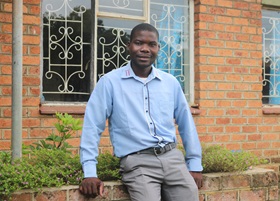
Joseph Kaipa, farm supervisor, outside his office. Photo by Francis Nkhoma, UMNS.
Five years ago, The United Methodist Church in Malawi, with support from the United Methodist Church of the Resurrection in Leawood, Kansas, purchased 25 acres of land about 2 miles from the Madisi church. In 2013 and 2014, a variety of crops were introduced, and a farmhouse, an office and stables were built. People learned methods of planting different vegetables, growing seasonal crops and raising livestock for income generation.
In 2015, the Madisi farm hired a special consultant, Luwayo Bizwik. As Bizwik showed villagers how to plant a variety of crops, others came to learn. That year and the next brought a bountiful harvest, healthy livestock and beautiful gardens. Villagers who once suffered from malnutrition began recovering, thanks in part to the vegetables from their gardens.
The farm has trained four village leaders and six health groups. They strive to improve their livelihood by encouraging one another, practicing permaculture at home and discussing how they can sustain good health. Anyone is welcome to participate in the health groups.
The farm faces challenges, however. Farmers need seeds and a treadle pump for irrigation. They want to add more livestock – goats, sheep and chickens – for sustainability. The plan is also to add a reliable solar-pump irrigation system. This would help farmers to plant a greater variety of marketable crops to earn money.
“It is our aim and hope that the farm should continue doing better by generating more income in 2018 and 2019,” Kaipa said. “It is our desire to train more people to become good models based on how the farm is functioning.”
Nkhoma is a communicator for the Malawi Provisional Conference.
News media contact: Vicki Brown at (615) 742-5470 or newsdesk@umcom.org. To read more United Methodist News, subscribe to the free Daily or Weekly Digests.
Like what you're reading? Support the ministry of UM News! Your support ensures the latest denominational news, dynamic stories and informative articles will continue to connect our global community. Make a tax-deductible donation at ResourceUMC.org/GiveUMCom.

